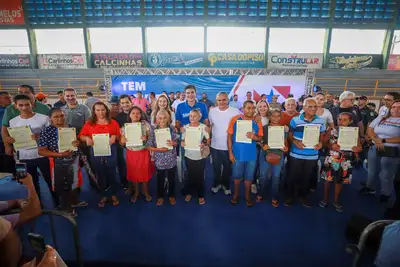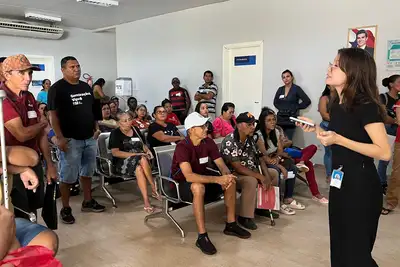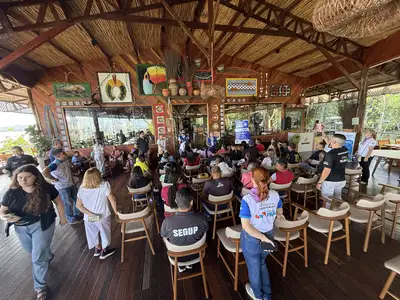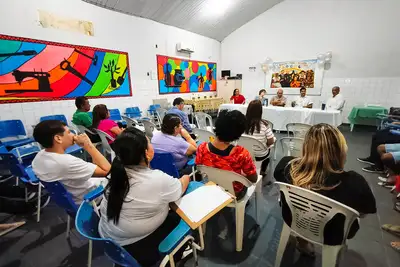Pará strengthens its role in the energy transition and ESG agenda at 'Engie Day'
ESG stands for "environmental, social and governance," an acronym used to measure environmental practices

The State Secretariat for the Environment, Climate and Sustainability (Semas) participated on Monday (23) in Engie Day 2025, an annual event of Engie Brasil, the country's leading renewable energy generation company. The meeting, held at the Museum of Tomorrow in the municipality of Rio de Janeiro, addressed the various challenges of the energy transition in Brazil, covering the business environment, the vision of the production chain, and the ESG agenda.
The panel "ESG Agenda" discussed issues related to COP 30, the regulated carbon market, strategies to ensure the energy transition, and addressing climate change. The debate was moderated by Flavia Teixeira, the manager of Environmental, Corporate Social Responsibility, and Energy Transition at ENGIE, with the participation of Rodolpho Bastos, the deputy secretary of Environmental Management and Regularity of Pará, and Carla Primavera, the superintendent of Energy Transition and Climate at BNDES.

Secretary Rodolpho Bastos highlighted the decarbonization plan aimed at Pará's electricity sector. The initiative proposes strategic actions that involve the shutdown of thermoelectric plants, the expansion of energy infrastructure in remote areas, and the strengthening of sustainable public policies aimed at economic development and social inclusion.
The project, the secretary emphasized, aims to integrate isolated regions into the electricity transmission system, with an estimated potential reduction of 276 thousand tons of carbon. The plan also provides for prioritizing environmental licensing for structuring works, such as transmission lines and energy redistribution, in hard-to-reach areas.
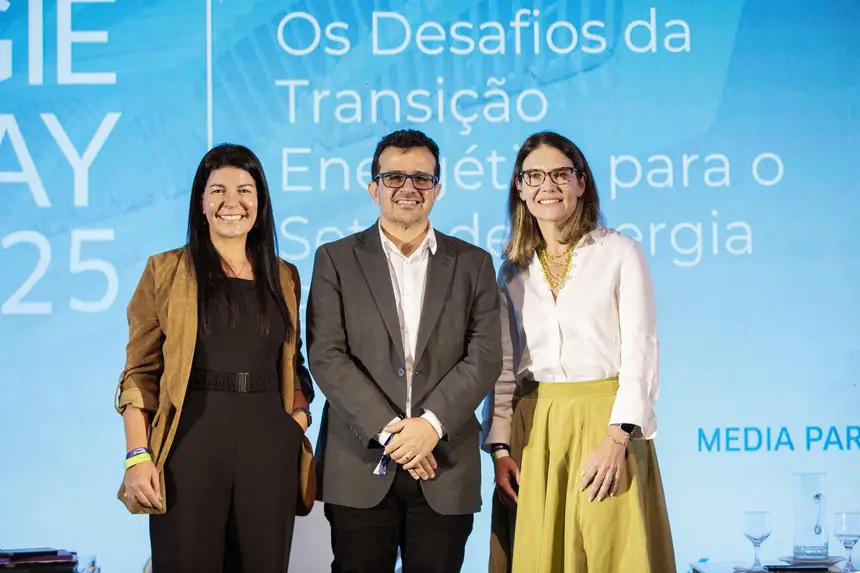
In addition to reducing emissions, the decarbonization plan also engages with other climate agendas, such as bioeconomy. "It is not possible to ensure the vertical integration of the açaí production chain in Marajó without reliable energy. It is essential to have local agribusiness. Energy is the starting point for the regional development of Marajó," commented the secretary of Pará.
Synergy between environmental licensing and ESG
Another significant advancement discussed was the creation of connections between environmental licensing and companies' sustainability policies (ESG). "Semas identified that, often, the social investments made by companies through their sustainability departments do not engage with the licensing process, which represents a loss of mitigating potential and positive impact," highlighted Rodolpho Bastos.

To change this scenario, the State government has signed more than ten technical cooperation agreements with national and multinational companies, seeking to align ESG projects with the socio-environmental components of licensing.
One example is the support from New Fortress Energy for water justice projects on Combu Island in Belém and sustainable oyster farming on the Pará coast. With targeted investments in dialogue with the state government, the actions bring improvements to local communities.
"Brazil is a global reference in the use of renewable energies, with great potential for clean energy production. But we will not have a just energy transition in the country without prioritizing conservation and inclusion vectors. Our great challenge of energy transition is therefore social inclusion. In the Amazon, we need a decentralized, democratic, and inclusive energy transition matrix," stated the secretary.
The meeting brought together various speakers, including Gustavo Labanca, Managing Director Power Networks at ENGIE Brasil; Gabriel Mann, Director of Strategy and Regulation at ENGIE Brasil Energia; Carla Primavera, Superintendent of Energy Transition and Climate at BNDES, as well as a large number of executives and members of the energy sector in the country. During the event, several panels discussed the challenges of the energy transition for the energy sector in Brazil, addressing topics such as the business environment, the vision of the energy sector's production chain, and the ESG agenda.
Text by Mário Gouveia / Ascom Semas



